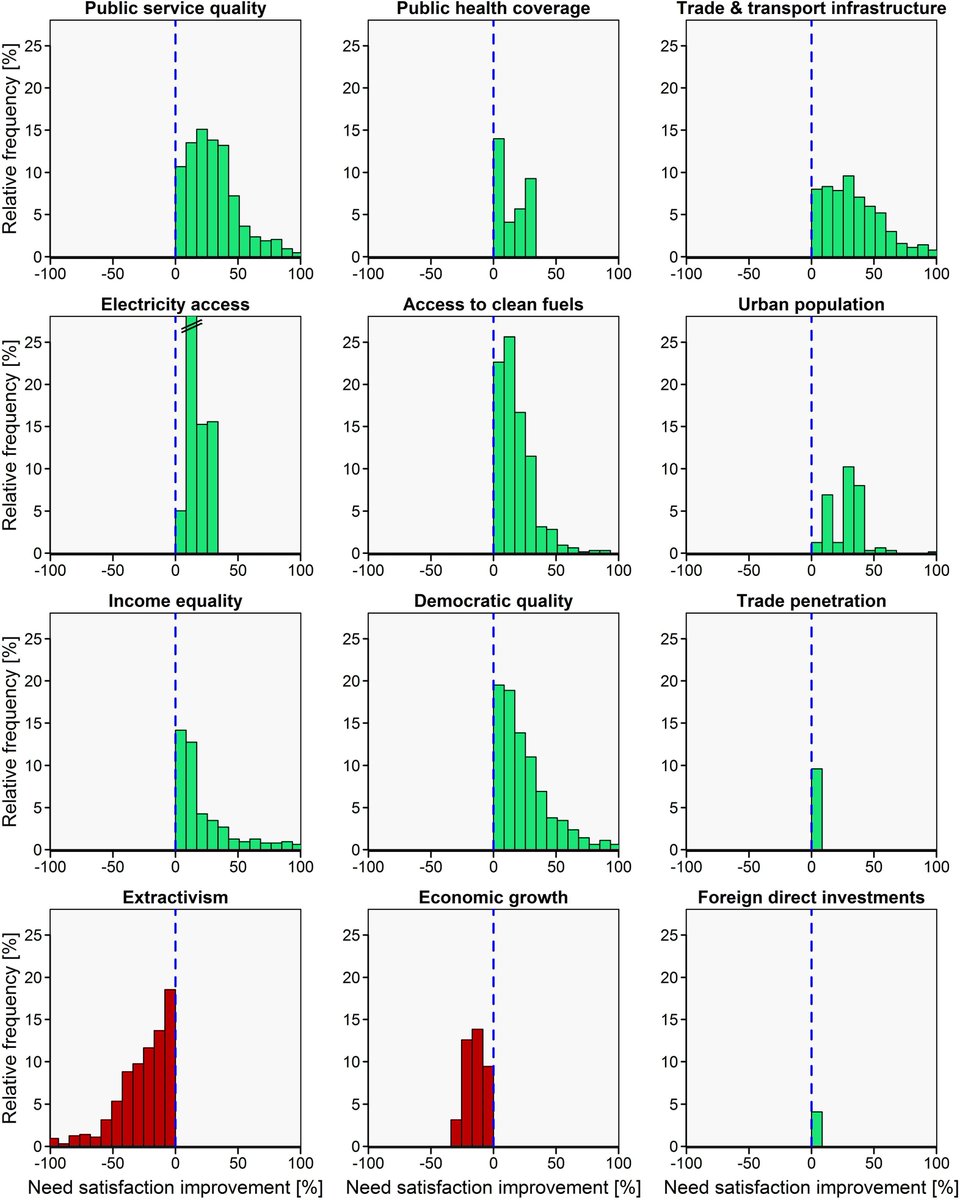
This new paper is hugely important. It demonstrates empirically that when it comes to meeting human needs what matters is *not* aggregate economic growth (beyond moderate levels), but rather provisioning systems. sciencedirect.com/science/articl…
Provisioning systems that are focused on universal public services, democracy, income equality, and access to key goods are able to meet human needs at much lower levels of energy use than systems that are based on extractivism and growthism.
This has been theorized in ecological economics for ages, but @JefimVogel, @JKSteinberger, @DrDanONeill, William Lam and Jaya Krishnakumar actually took the time to prove it. It's a huge contribution.
What does this mean for policy? It means that if rich countries establish universal public services and reduce inequality, they can ensure good lives for all while scaling down aggregate commodity production/consumption and energy use (degrowth).
This also has significant implications for development policy, building on Amartya Sen's observation that a single-minded focus on GDP is inefficient when it comes to improving social outcomes.
Check out how extractivism and growthism compare with other indicators when it comes to improvements in meeting human needs: 

"With a ‘jointly beneficial provisioning’ configuration (high public service quality, high income equality and low extractivism), all human needs assessed in this study could likely be sufficiently satisfied within sustainable levels of energy use."
"Our findings challenge the influential claim that economic growth is beneficial to human well-being. In fact, our results suggest that at moderate or high levels of energy use, economic growth is associated with socio-ecologically detrimental performance."
"These findings imply that economic growth beyond moderate levels of affluence is socio-ecologically detrimental. At low levels of energy use (currently corresponding to low levels of affluence), economic growth exhibits no significant association with need satisfaction."
"Abandoning the pursuit of economic growth beyond moderate levels of affluence thus appears ecologically necessary and socially desirable."
"Our analysis provides a strong case for redistributive policies that establish both minimum and maximum income and/or consumption levels."
All of this underlines the fact that our struggle against climate breakdown needs to unite the core demands of the *environmentalist* movement (reducing energy use) with the core demands of the *labour* movement (universal provisioning and equality). We must build this alliance.
• • •
Missing some Tweet in this thread? You can try to
force a refresh




